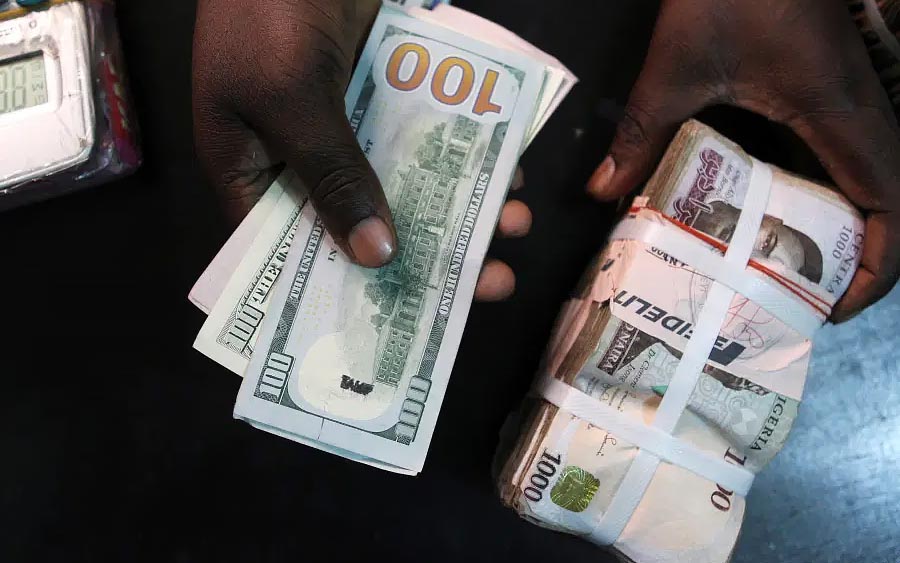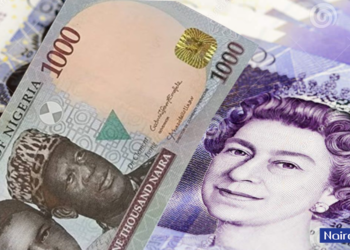The dollar has risen more than 100% to the naira since 2015 and seems poised to continue value addition against the naira. With the currency now selling for N430.33 officially and the black market offering it at N710, it is only a matter of time before a dollar will exchange for N1, 000. There needs to be a coordinated effort by the fiscal and monetary authorities toward achieving an export-led industrial economy as the lasting solution to the naira problem.
There was hope early in the life of this administration that the dollar/naira equation will move in favour of the naira down the line. The president was a tad optimist when he declared that he was going to ensure naira/dollar parity in no distant time. But seven years down the line, the value of the naira is gravely eroded. The prevailing economic conditions suggest that the drop in naira value will continue and we will be lucky if the exchange rate does not jump to N1000 to a dollar by 2023.
Central Bank in the mix
While the CBN will continue its monetary control measures to maintain the value of the currency, these measures may not be enough, especially at a time that speculators have sensed that the naira is overvalued and are out on a mission to profit from the distortion. It is a scary prospect given what speculators did to the Thai Bhat in the 1990s, which caused a regional contagion that shook Asian economies.
- As it stands, the Central Bank can look into its war chest of $36 billion reserves to defend the naira but that is likely to run out if earnings from oil do not improve dramatically or rather, oil earnings are not cancelled out by imports of refined products. This goes to say that a short-term fix can only come from rising oil prices.
The Fiscal side
- The fiscal side is likely to lose focus owing to the 2023 elections where all attention will be shifted to politics and politicking to the neglect of the economy. As politicians are wont to do, there will be a flood of electoral naira, pushing up inflation and a concomitant effect on the exchange rate.
- In that period of hard politicking and horse-trading, the mandate of steering the economy to higher grounds is likely to get lost in the milieu. That mandate involves building the manufacturing base of the economy and an aggressive export policy. This is the surefire way to reverse the dollar demand that will work in favour of the naira to the effect of raising its value. This argument cannot be overstated.
- Beyond oil, the government has to ramp up manufacturing and create a market for made-in-Nigeria goods and services. For external buyers of Nigerian products to get a hold of Nigerian products, which we assume would be of the highest quality, they must, first of all, go for a fistful of naira; it is this demand for the local currency that can cause a shift in the value of the naira; nothing more, nothing less.
- A quick look at the export value of the economies with the strongest currencies should suffice. The United States exported USD 260 billion in June of 2022; $332.96 billion for China and 224898.20 Euros in June for the Euro Area. Compare these to Nigeria’s miserly export of about $42.4 billion as for the whole of 2020 as per OECD data. The numbers more than obviate the need to ramp up manufactured exports. But this is a painstaking and medium to long-term measure.
Bottomline
The fiscal authorities can set the tone by giving allocations to federating units in dollars. This can be a short-term game changer if it is not abused by the states. For them to use the allocations for any project, they must first convert them to naira; this creates an immediate and strong enough demand for the naira to cause it to appreciate.
We encourage the CBN to continue with its short-term measures, we urge the fiscal authorities to pursue long-term measures that would require making the economy an export-based one. It is the only sustainable solution to the naira woes. It is the only way to stem a possible slide of the naira to one thousand naira to one dollar by 2023.
















.gif)







The article is poorly written and at Nairametrics level didn’t do justice to the title. Any economics buff know the basic causes of the naira. To compare a monthly data to two years annual data doesn’t show the writers are communicating to people who can address the problem but refuse to do anything about it.
Float the currency and let’s know where we stand – CBN and co should also exercise some fiscal responsibility…spending anyhow will fuel a poor rate…lastly – fx supply won’t increase reasonably if we continue these iron curtain policies – you want people to bring in fx but not to exit fx? That sounds fraudulent to me…fx needs to come in freely and exit freely…at a consistent exchange rate.
I hope the foreign airlines sue CBN eventually…and sue them outside Nigeria…